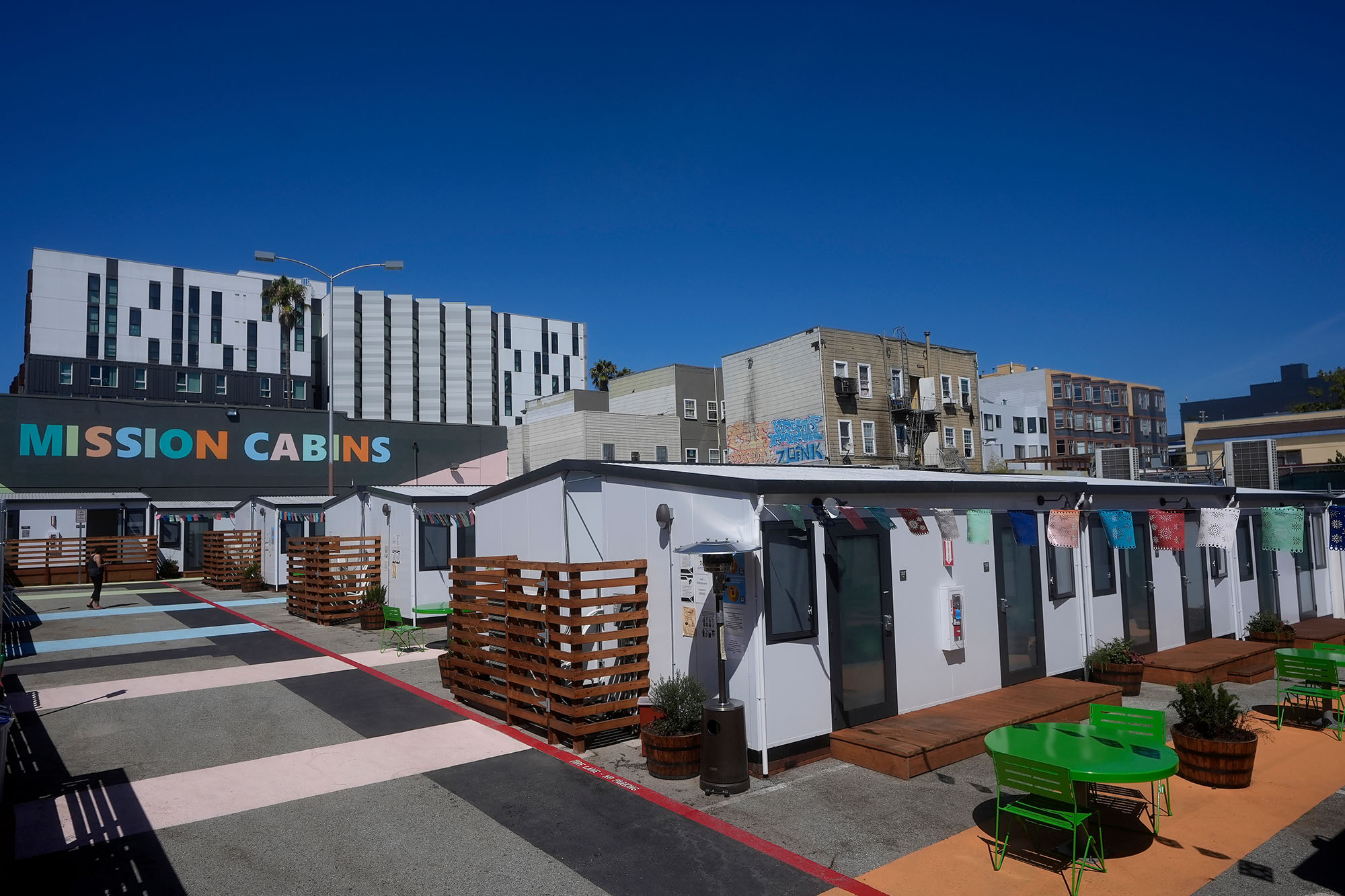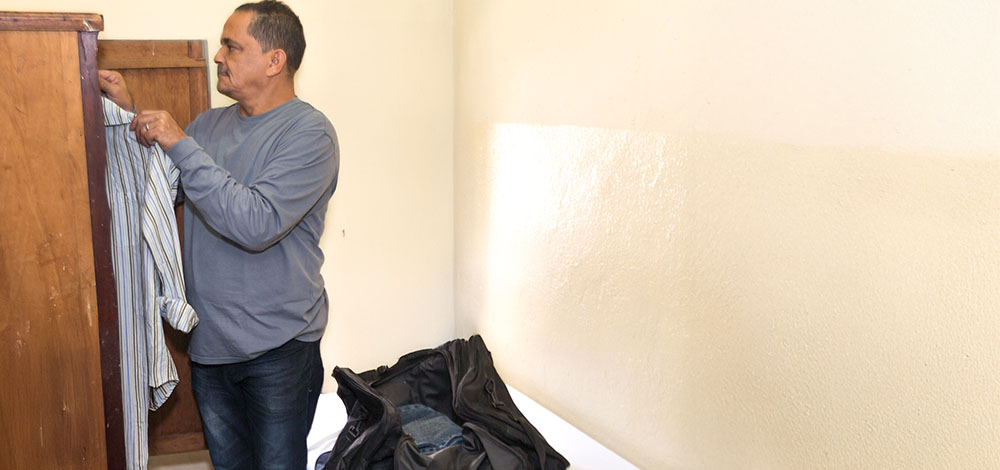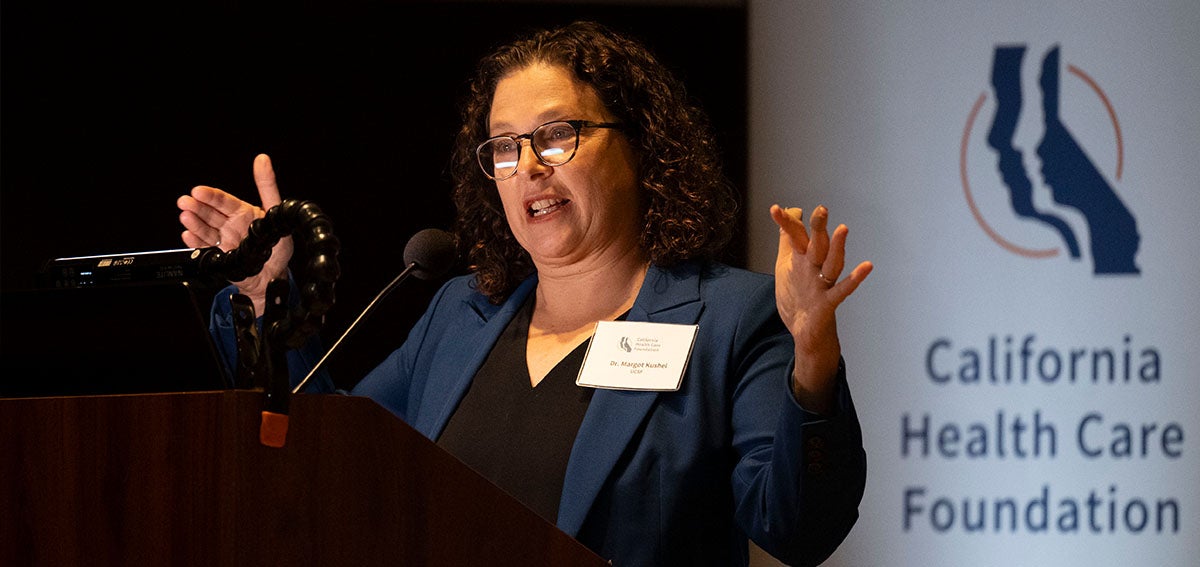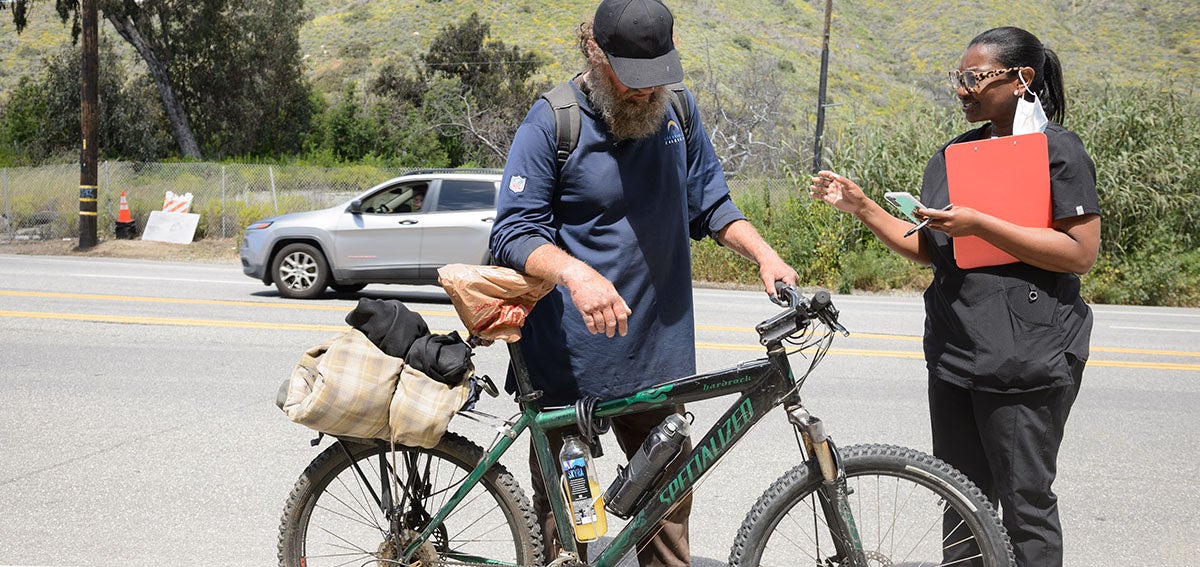|
Getting your Trinity Audio player ready…
|
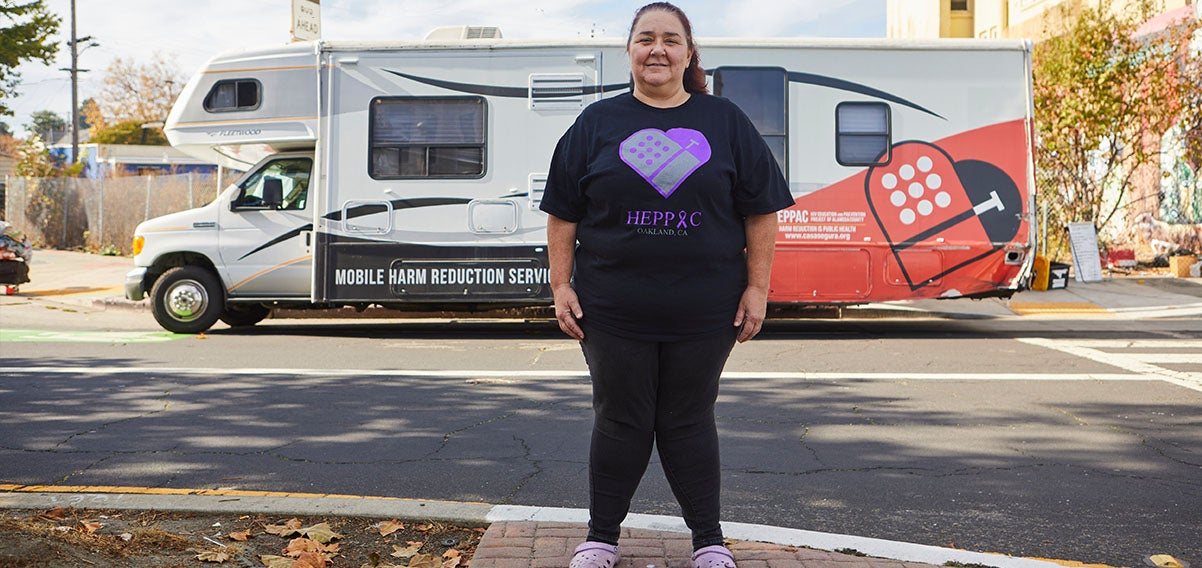
Sabrina Fuentes’s experience with homelessness was a valuable asset when she applied for a position on the board of a local health center in Oakland. The board — comprised of people who have experienced homelessness — guides the organization’s efforts to improve care for people struggling with housing insecurity and homelessness.
Fuentes had previously spent time in drug rehabilitation programs, been involved in the justice system, and temporarily lived in a tent. She eventually secured a spot in a homeless shelter, progressed through a supportive housing program, attained a community college degree, and now works as a case manager at the HIV Education and Prevention Project of Alameda County. In 2016, she joined eight board members who met monthly with one of the managers of Alameda County Health Care for the Homeless (ACHCH). They developed patient experience surveys, organized focus groups in the community, and prepared for rallies locally and nationally.
“It hurts to see people suffer who are homeless, especially because I know that could be me,” said Fuentes, pausing to hold back tears. “It lessens the pain to know that I have something to offer by educating providers and systems about how to better serve people who do not have stable housing.”
Fuentes is among a growing number of people with lived experience of homelessness who are finding opportunities in California to influence health care systems, universities, and other organizations focused on serving and researching this population. While the practice of including at least one individual with lived experience on a governing board is fairly common among these organizations, more entities are starting to create an entire board or council of people who know what it is like to lose their housing.
“It can feel tokenizing to have one seat on a stakeholder board representing the homeless experience,” said Kara Ponder, PhD, director of community engagement and racial justice at UCSF’s Benioff Homelessness and Housing Initiative. “Homelessness is not a monolithic experience, and we need an entire collaborative of allies with lived experience who have a safe space to speak and to share different perspectives.”
Influencing Academic Projects
When researchers at UCSF started preparing to launch the state’s largest ever study of homelessness in 2021, Ponder began searching for trusted partners to join a Lived Experience Advisory Board. She reached out to Continuum of Care boards throughout the state asking for recommendations of people representing a range of experiences of homelessness — rural and urban, young and old, single and in families, and living sheltered and unsheltered. Each member of the new advisory board would be compensated for their time at a rate of $150 per monthly 90-minute Zoom meeting and $100 for the labor required to prepare for each meeting, which would include reviewing survey questions and study findings. After receiving 15 applications, Ponder selected 10 board members.
These advisers’ impact was clear. As the researchers developed a survey for over 3,000 people, board members shared critical input about its questions. When presented with one question that showed a list of possible reasons for losing housing, for instance, they explained that “losing a job” did not adequately encapsulate the financial causes of homelessness. They suggested adding options such as a termination of benefits, the end of a relationship, or someone you love needing money. “The researchers had missed an entire world of economic insecurity, and the survey was much richer because the board members could see things the researchers could not,” Ponder said.
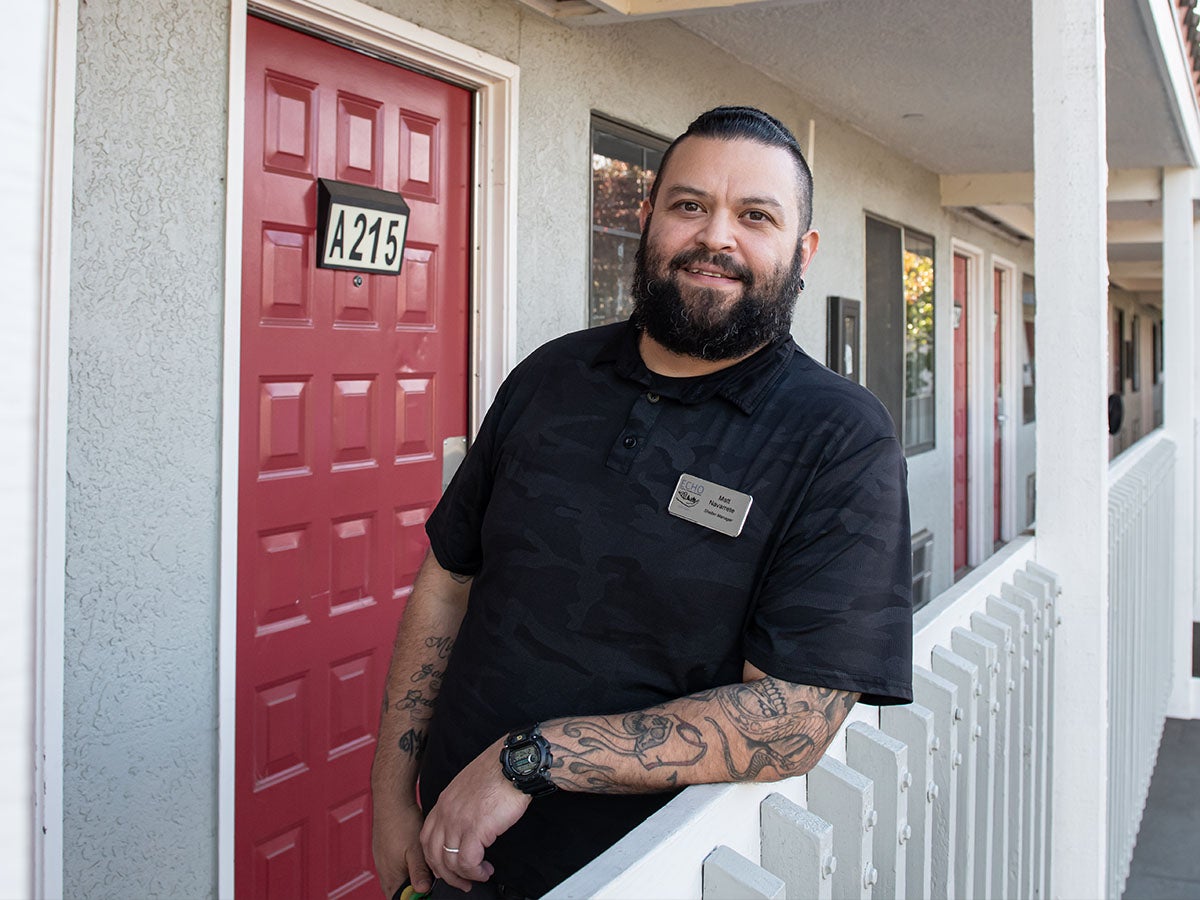
When it was time to analyze data from the surveys, the board provided valuable insights to help the investigators interpret the findings. They helped the researchers identify patterns in the data, such as the cascade of negative events — rather than a single incident — that often lead to the loss of housing. Someone may lose a lease or move in temporarily with a friend or relative, and then transition to a small apartment shared by a number of people, said Ponder. The cramped living conditions might then be stressful and push someone to try to find another place to stay, but there may be nowhere else to go.
“The board members helped us see the need for more policies that help people find shared housing that is affordable, in good condition, and not too crowded,” said Ponder. Now board members are co-presenting the study results at conferences, in webinars, and in op-eds.
Beyond the Board Room
At ACHCH, Fuentes and other members of the Community Consumer Advisory Board (CCAB) were instrumental in the organization’s decision to pilot a new, evidence-based treatment program for people struggling with stimulant use, said David Modersbach, a manager at the Alamada Homeless Health Center who participates in the meetings. “The board pointed out that we had programs for opioid use disorders, but little for people using methamphetamines,” he said.
While working together, the board members also discovered that each participant brings different skills and experiences to the table. For instance, CCAB board member April Anthony’s strength in communicating with unhoused communities was vital during the pandemic. She worked as a vaccine ambassador for ACHCH and helped to dispel myths about vaccines because patients viewed her as a trusted source of information, said Modersbach.
What started as a single voice within a board has progressed to the creation of governing bodies full of people who can provide important perspectives and influence larger organizations.
The board experience has also opened doors for jobs and leadership opportunities for members. Fuentes, for example, is now an appointed member of the ACHCH Commission, the health center’s governing board. She also recently joined an advisory council for CommonSpirit Health, one of the largest nonprofit health systems in the US.
In some cases, new roles that generate income can also create challenges, said Modersbach. “People need help learning how to pay taxes and to select benefit plans, so we need to create better support for the pathway from homelessness to employment,” he said. Their payment for participating on the board or performing other roles can also affect their Social Security income and ability to qualify for supportive housing. “I spend a lot of time advocating for board members not to be punished for the compensation they receive,” he said.
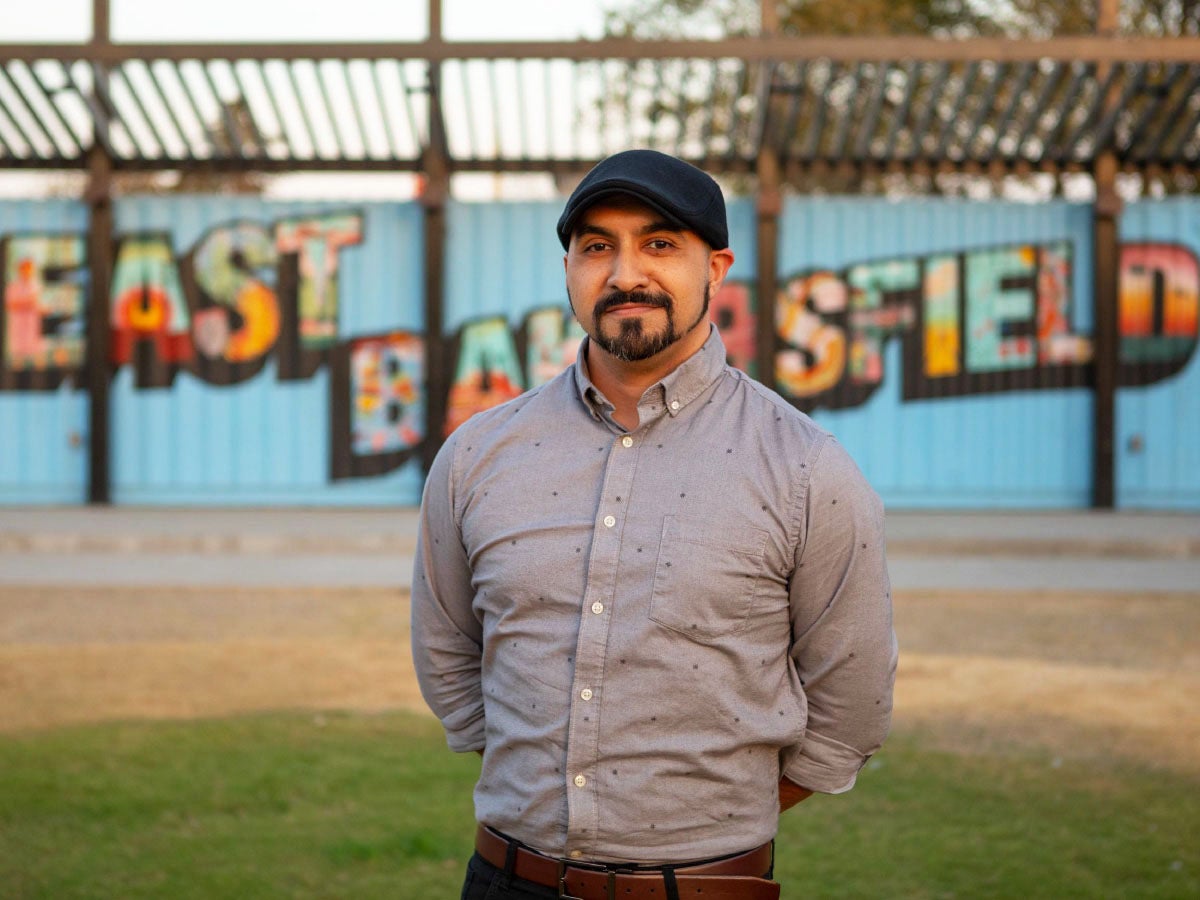
Challenging Assumptions
Leaders at CommonSpirit Health recognized the importance of creating an advisory council made up of people with lived experience of homelessness. The health system launched a $20 million initiative in 2019 to improve services to communities experiencing homelessness in California, and part of that effort involved the formation of the Research and Equity Advisory Council for Housing Insecurities (REACHI).
In 2022, the council members, who represent eight counties throughout California, started meeting quarterly to identify needs in different communities and discuss and recommend projects for the organization to fund. Members, who are compensated based on their meeting attendance and roles in the council, can receive between $500 and $2,600 per year for their engagement.
Advisory council member Matt Navarrete, who lives in Paso Robles and works for the El Camino Homeless Organization (ECHO), helped bridge the gap between one of CommonSpirit Health’s community partners and the residents of an adjacent high-rise apartment building. The residents were concerned when the neighboring Motel 6 was transformed into an ECHO shelter for the homeless, regularly calling the police department with complaints. Navarrete offered to be the point-person to handle the issues. “Sometimes one of the people living in the shelter is having a bad day, and I can usually address the concerning behavior by being available to help out,” Navarrete said.
The council members also had opportunities for professional development by CommonSpirit Health’s Community Health team to learn more about how to evaluate projects. “I’ve learned how to create metrics to measure the potential success of something that has never been done before,” said Victor Palacio, an advisory council co-chair who lives in Bakersfield. “I am a lifelong student, and I have learned so much on the council.”
Palacio has also shared important perspectives with the council based on his personal experience with homelessness as a child. His family lost their housing when he was seven because his father could not find work, and for three years bounced between living in hotels, shelters, and on the streets — sometimes stealing food to eat. “Organizations providing essential community services often don’t consider the burden of finding affordable childcare for families who are homeless,” he said. “This can create a barrier to accessing important resources.”
For Nicole Wilson, the CommonSpirit Health project manager who oversees REACHI, insights from the council have illuminated the importance of integrating their input more regularly into organizational decisions that affect the homeless population. “They challenge the way we approach projects, and we need their expertise incorporated systematically from the initial stages through completion of our projects,” said Wilson. “We need to push our organization to follow up by showing our council members how their feedback was used.”
The stories of Navarrete, Palacio, and others throughout the state reflect an evolution in the way organizations view people with lived experience. What started as a single voice within a board has progressed to the creation of governing bodies full of people who can provide important perspectives and influence larger organizations. Now, leaders are eager to see these advisory entities continue to gain respect and improve health care for Californians experiencing homelessness.
Authors & Contributors
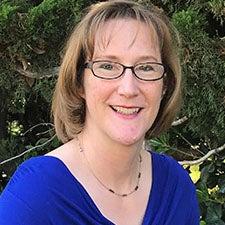
Heather Stringer
Heather Stringer is a freelance health and science journalist based in San Jose. She studied civil engineering at Stanford University and started her journalism career at a daily newspaper in Fremont. Heather began covering health care as a staff writer and editor at a nursing magazine and launched her freelancing career in 2003. Her work has been published in Scientific American, Monitor on Psychology, Cure, Proto, and Nurse.com.

Weber Shih
Weber Shih is a photographer based in San Francisco. He works with a wide range of subjects, but his specialty is photographing people for editorial and commercial clients.
Shih studied rhetoric and political science at UC Berkeley and occasionally teaches photography at institutions like Academy of Art University and City College of San Francisco.

Stephanie Secrest
Stephanie Secrest is a freelance photojournalist currently working on the Central California Coast. She has more than 35 years of editorial experience and has won more than two dozen international awards in photography.
She received a master of arts in photojournalism from Ohio University, where she studied under Arnold Gassan, a colleague of Ansel Adams.

Jennifer Williams-Cordova
Jennifer Williams-Cordova is a multidisciplinary artist specializing in graphic design, photography, illustration, and mural painting. She works as a commercial graphic designer and photographer in Bakersfield, California.
Her career began in 2006 when she graduated with honors in art and design from California State University Fresno. Jennifer enjoys sharing the work she creates via Instagram, and you can follow her @jenwillco.

